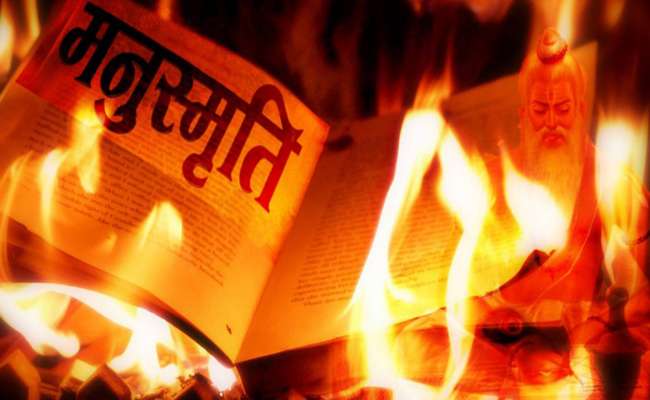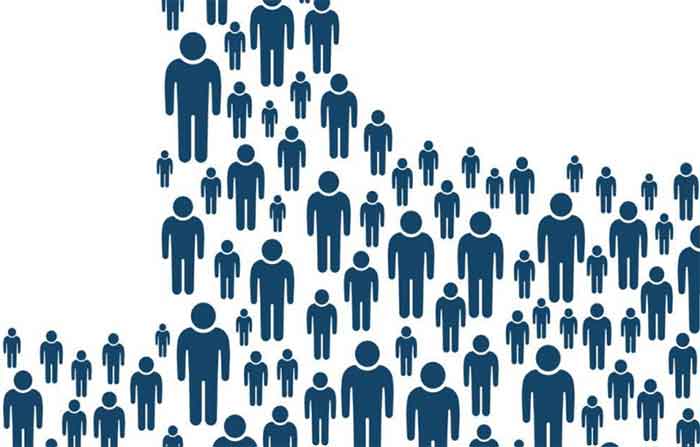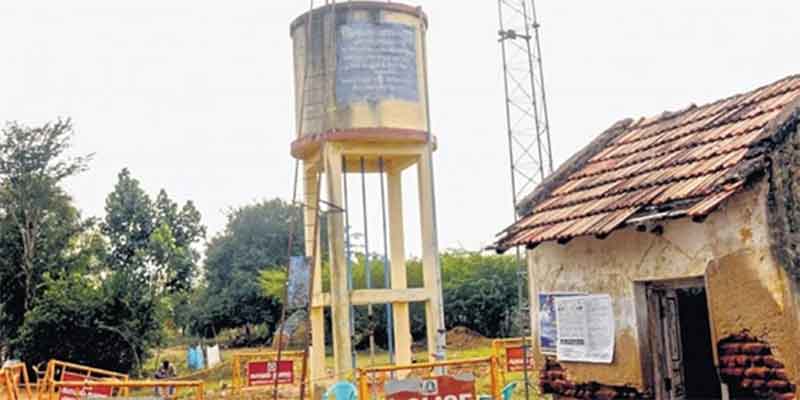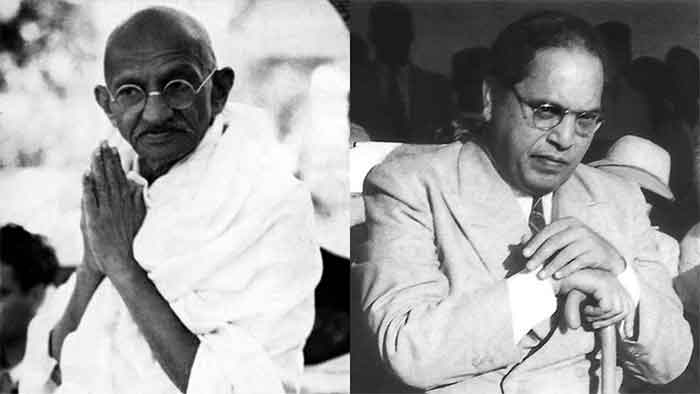
I was born a bania, a savarna or upper-caste, and that is why I was born a bad person. Let me explain. I am part of that minority for whom the benefits of the caste system far outweigh the costs (if there are any costs at all except for making me lazy, stupid, selfish, and arrogant by making everything in life easy). I was born into the system and every second of my life I benefit from the system. From the moment I was conceived (and from even before that) there hasn’t been a single micro-second when I haven’t benefited from the caste system. That is why I am a bad person.
Why do I bring this up? Recently, I was having a conversation with a bania friend of mine and I told her I think she and I are bad people. She instantly went on the defensive and asked me if she is a bad person, when did she become bad? At what age did she become bad? Was she born bad? I told her I would have to think about it. I have and I have reached the conclusion that we are indeed born bad. In fact, we have been benefitting from the caste system from even before we were born, due to the low level of stress on our mothers, and due to her access to good nutrition, medical care, etc. After birth, the picture becomes much clearer as we go into what food we eat, what houses we live in, what schools we go to, what heroes our country makes available to us, etc. All these things were available to our mothers and are available to us because there are people who are parting with their lives and their dignity to make ‘our’ resources available to us.
Some people were (and still are) born untouchables due to the caste system. It should come as no surprise then that savarnas whose lives are built on that untouchability (our lives can’t but be built on other people’s untouchability) are born the worst people. It fits in perfectly into the logic of the system. Till the caste system is annihilated, I will remain a bad person. There is no other way out, I can’t individually become casteless and good because the system does not give such space to individuals, whether they be lower or upper-castes. Sure upper-castes can fool themselves into believing they are casteless, as many ‘good’ upper-castes like Arundhati Roy and Ashis Nandy have done, but that does not become the truth and they don’t fool others.
We are part of a structure, we can break the structure and free everybody oppressed by it, but we cannot escape the structure as individuals. It is extremely foolish to argue that we are individuals and our lives began at our birth and we should be judged accordingly. All individuals are part of classes, and in the subcontinent all individuals are also part of ‘enclosed classes’ called castes. We are structural variables in a society composed of castes, we aren’t and cannot just be atomized individuals. As Babasaheb Ambedkar put it, ‘To say that individuals make up society is trivial; society is always composed of classes. Their basis may differ. They may be economic or intellectual or social, but an individual in a society is always a member of a class.’[i]
I have been in many conversations with my fellow savarnas where they have adamantly maintained that they were good people. I have tried to argue that we can’t be good people but I have always been met by a rigid resistance.
This rigidness in the savarnas is a reaction to the lower castes claiming to be people, not good or bad, just people. If the lower castes are claiming to be people, of course the upper castes need to do one better and claim that they are good people. It is as simple as that. ‘Ok so you fellows are people now, then we are good people because we let you be people.’ (Liberal savarnas should be reminded that this is precisely what Savarkar advocated – untouchables freed from untouchability should be grateful for the ‘goodness’ of the savarnas.[ii]) It is ingrained in us from birth to differentiate and distinguish ourselves from the lower castes by using supremacist ideologies and lies. This obsession with claiming to be good people is just another manifestation of age-old Brahminism. (In America white people claim to be good people because in them it is a manifestation of their inherent racism.)
What arguments are usually given by savarnas to ‘prove’ that they are good people?
- We haven’t knowingly done anything bad
- We do good deeds
My friend told me she had never discriminated based on caste and she had helped her maid’s daughter go to school, that too when she was only 16.
Let’s take these arguments apart one by one.
To start from the basics, does a person become an untouchable knowingly or are they born into it? Of course, nobody becomes an untouchable knowingly, so it must mean that they become untouchable ‘unknowingly’ due to the caste system. If the caste system makes them untouchable, what stops it from making you bad? In fact, the caste system relies on you being bad to maintain itself. Who else but bad people could benefit from such a thing as the caste system and not die of shame or live every moment of their life in immense guilt for what they have been born into? Your ability to live a moment of your life free of guilt and shame is predicated on you being a bad person.
You say, ‘Oh but the caste system is bad, and just as the untouchable does not accept their untouchability in revolt against the caste system, I do not have to accept that I am a bad person’. That is true, you certainly do not have to accept that you are a bad person. But does your acceptance have anything to do with it? It has been documented well enough by now that even when an untouchable refuses to accept their untouchability, they still have to live under its stigma because of the society they are in, which they can’t escape. As Rohith Vemula put it so succinctly, ‘My birth is my fatal accident.’ If an untouchable gets no choice in their untouchability, why should a savarna get any choice in their badness? A savarna is only allowed to not be bad when the caste system is no more. As long as there is the caste system, a savarna is bad. As long as the caste system exists, no individual is capable of escaping caste. Either we all get out together, or no one gets out.
Further, if you choose to remain ignorant of the caste system (as only savarnas can), does that mean you don’t get affected by it or are not culpable for it? Is not your ignorance itself an expression of your caste privilege and thus criminal? Men don’t have to know of patriarchy or knowingly be patriarchal to benefit from patriarchy. (As has been documented by women, men remain blissfully unaware of patriarchy and have to literally be handheld into seeing patriarchy for what it is.) Why does a savarna have to knowingly be a savarna to benefit from caste? If you do not knowingly exploit somebody, does that mean you don’t exploit anybody? Have not the theorists of class proven again and again that the structure of the market (dominated by the upper class state) makes it such that cheap labour will always be available due to manufactured desperation. When you pay your maid the market rate, you are not exploiting her knowingly because you are giving her what’s ‘fair’ but you are exploiting her in as much as the market rate is set by an exploitative structure. You don’t have to knowingly exploit to participate in an exploitative structure.
Neither your ignorance nor your purported fairness prevents you from being ignorant and fair inside of an exploitative structure that breeds this ignorance and sense of fairness in you. Many savarnas would not be able to bear the guilt of knowing that they are not fair (no pun intended) people, which is why it is important for the caste system to breed both ignorance and a sense of achieved fairness (which is incidentally why knowledge is essentially antithetical to the caste system.) The caste system needs savarnas as much as it needs untouchables. It needs savarnas willing to be alive in a world where people are made untouchable, and it does not matter whether they stay alive consciously or subconsciously or unconsciously. By being ignorant and by construing ourselves as fair, we are doing nothing else but playing our roles in the caste system. Can it seriously be argued that playing the role of savarna does not make us bad people?
‘Haven’t knowingly done anything bad’ is thus not an argument. You are meant to unknowingly benefit and exploit. You have done so. ‘Oh but nobody asked us, we would not take these privileges if we were asked.’ But that’s the point. You don’t have to ask for the privileges, you get them by the ‘accident’ of your birth. Just like Rohith Vemula gets untouchability thrust upon him by the ‘accident’ of his birth. Since he can’t just give back his untouchability, you can’t just give back your privileges, existence does not work that way. It is thus childish to say you didn’t ask for it. You have it and you are bad. You were born that way. Tough luck.
Now, to the second argument—good deeds, charity, philanthropy, giving back to society, etc. No one has argued that bad people can’t do good deeds. Every bad person does some good deeds. Take the example of Hitler, the most widely agreed upon example of a bad person. You will be hard-pressed to find anyone who thinks Hitler was not a bad person. Did he not do any good deeds? He gave the world Volkswagen, he conducted an extensive anti-tobacco campaign, he authorized research on cancer, and, specially for the Jains in his constituency, he was even the first among the ‘Aryans’ to introduce animal rights and outlaw animal testing, something Jain monks are apparently very hot for. I know I will be accused of strawmanning the argument but this is just to prove that the logic of the argument doesn’t hold. Good deeds do not automatically make a good person. Look at Rhodes or Bill Gates. (Gandhi might be the only bad person who didn’t do any good deeds.)
Fellow savarnas argue that of course they are not as bad as Hitler whose bad deeds outweigh his good deeds; savarnas say their good deeds outweigh their bad deeds and that is why they are good people. I would suggest to these savarnas to think about what they are saying. Every second of your life you have benefitted from caste; from sleeping on your feather mattresses to being alive as people who do not have to prove your personhood. Are you really suggesting that you have spent more time doing good deeds than you have sleeping or existing? It is an existential impossibility. Even if you are doing good deeds every moment you are alive, you are doing them in the framework of caste. So you are a bad person even when you are doing good deeds. Besides, no one can seriously claim that they have done good deeds for a majority of their lives. For people not in the know, majority of your life just goes in reproducing life—that is sleeping, eating, pissing, shitting, getting money to buy the ability to do all this, etc., all of which you also do with savarna privileges. Caste has a much larger claim to your time and thus even with the bania calculus of weighing good and bad deeds, you turn out to be in the red.
Both the arguments made by savarnas are thus logically and practically absurd. You are not an atomized individual so you can’t act like one. You are always living your caste privileges, so some good deeds don’t magically negate all of that. Till there is caste, we savarnas are bad people. It is time we accept as much and stop trying to prove our goodness. If it was a harmless activity, it wouldn’t be a bother. But this attempt to prove goodness is not a harmless activity. It is just another way of asserting brahminical supremacy.
You can only be good people in contradistinction to others who are not as good. If everyone was as good, everyone would just be people and good would not be a differentiating adjective. To call oneself good, one has to set up a category of bad people or, at least, not-as-good people (and not only to set up this category of bad people but to assume the power to materialize one’s judgment in a way that the category is actually filled by living people). Who are these people who are not as good? Of course, they are those who are not happy with what they have and who assert themselves in ‘bad’ ways (criminal or morally revolting ways according to savarnas—like terrorists, naxals, pragmatic politicians, etc.).
It is obvious that people who revolt against a system will be those who are suffering from it, thus it is obvious that the untouchables revolt against the caste system with whatever means they have. They thus become those who are ‘spoiling’ the fun, the mood, the vibe, the decorum and peace of society. They are constructed as the bad people as they are forced to assert themselves in allegedly ‘indecent’ ways just to claim personhood. In this process of claiming personhood, they become bad people because we who are happy with what we have want to become good people.
This whole game of goodness and badness is not at all benign because it is this precise way of thinking that underlies caste atrocities happening all over the country. Dr Teltumbde has persuasively argued through his analysis of Khairlanji that caste atrocities happen when Dalits assert their rights to be equal human beings.[iii] The savarnas see this assertion as ‘bad’ and ‘punish’ the bad dalits, thus becoming good people themselves (those who assume the power to judge the bad obviously see themselves as the good). My savarna friends do not ‘knowingly’ participate in caste atrocities, and they even overtly condemn such things, but by their blind insistence on their goodness, they definitely participate in the ideology and thus perpetuate caste atrocities. My sister tells me rape culture promotes the willingness and ability to rape; I hope she understands how her insistence on her goodness promotes the willingness and ability to commit caste atrocities.
It is extremely high time for savarnas (and especially liberal educated savarnas) to understand that this attempt to prove our goodness makes us even worse than we are, if such a thing were possible.
‘So, okay, we are bad people, what do we do now?’
Short of devoting our lives to annihilating caste because we don’t want to be bad people anymore, there is not much to do. When he made his case for the annihilation of caste[iv], Babasaheb did not say it was going to be easy and we creatures of easiness should not expect it to be so.
Note: I do not take the axes of class, gender, and sexuality because these arguments have been made to me by savarna individuals of all three hues—by the lower class savarna, by the female savarna, and by the transwoman savarna. Besides, I think none of the three axes are as comprehensively rigid, systematic, and totalizing as the caste system. One does not annihilate class, one institutes better class relations. One does not annihilate gender and sexuality, one institutes a better understanding of gender and sexuality. One annihilates caste because there is no possibility for instituting better caste relations or a better understanding of caste.
[i] BR Ambedkar, CASTES IN INDIA: Their Mechanism, Genesis and Development. Paper presented at an Anthropology Seminar taught by Dr. A. A. Goldenweizer Columbia University 9th May 1916. Text first printed in: Indian Antiquary Vol. XLI (May 1917). Accessed at: https://roundtableindia.co.in/index.php?option=com_content&view=article&id=2678:castes-in-india-their-mechanism-genesis-and-development&catid=116&Itemid=128
[ii] Samagra Savarkar vangmaya, Vol.2, 1936, p.670. Accessed at: https://savarkar.org/en/encyc/2017/5/22/Eradication-of-untouchability.html
[iii] Anand Teltumbde, THE PERSISTENCE OF CASTE: THE KHAIRLANJI MURDERS AND INDIA’S HIDDEN APARTHEID, London and New York: Zed Books, 2010
[iv] BR Ambedkar, THE ANNIHILATION OF CASTE. Accessed at: https://ccnmtl.columbia.edu/projects/mmt/ambedkar/web/readings/aoc_print_2004.pdf
Akshat Jain is a writer currently residing in India. He uses the debate methodology of Syādvāda to piss people off. Like a good Syādvādist, he claims that all his claims fall within the ambit of falsifiability.
SIGN UP FOR COUNTERCURRENTS DAILY NEWSLETTER
















































